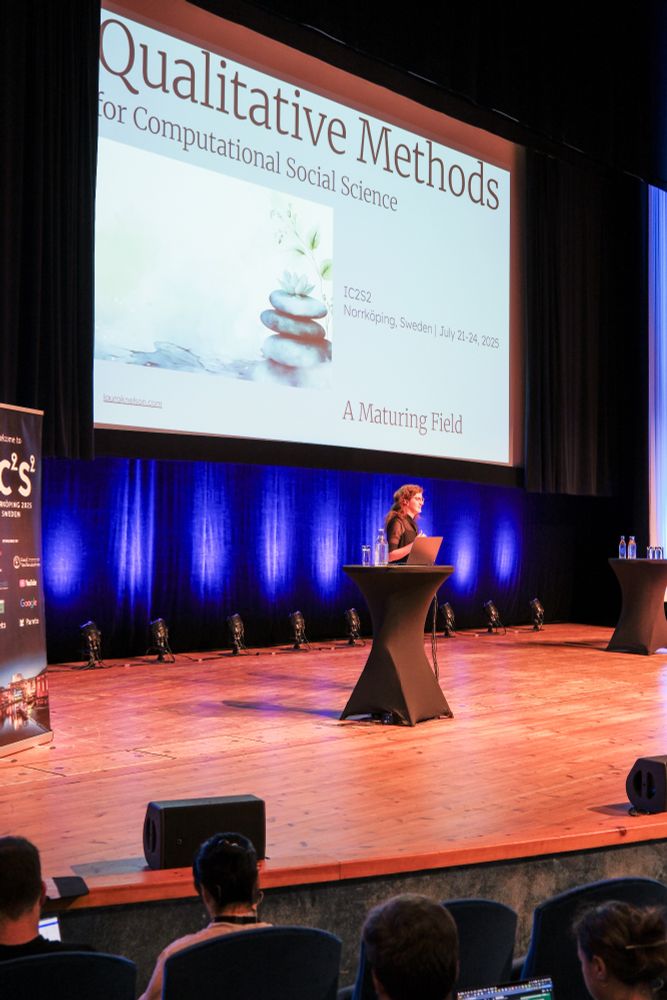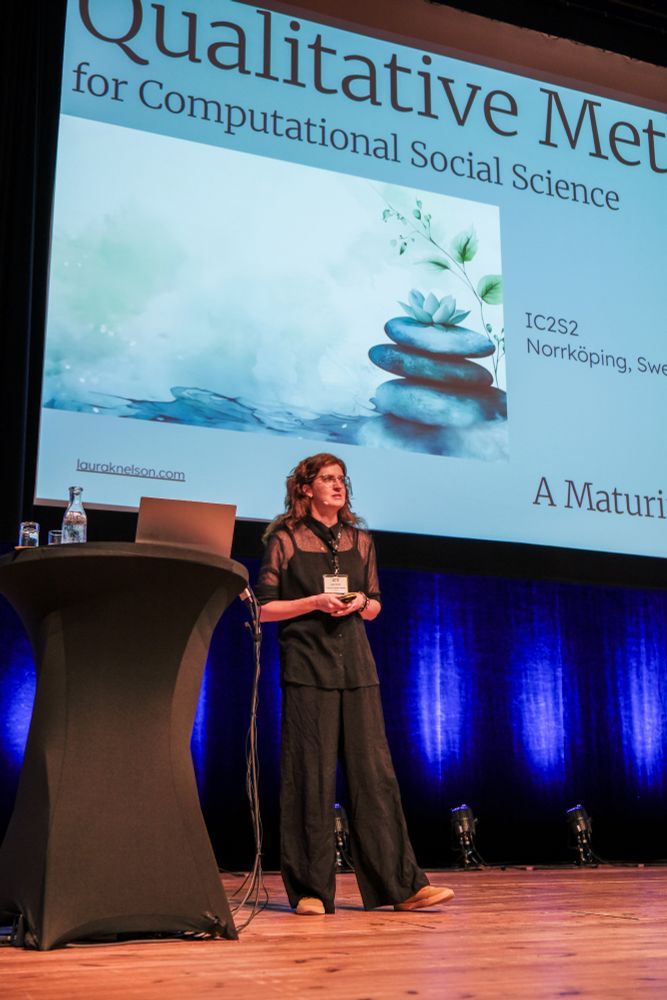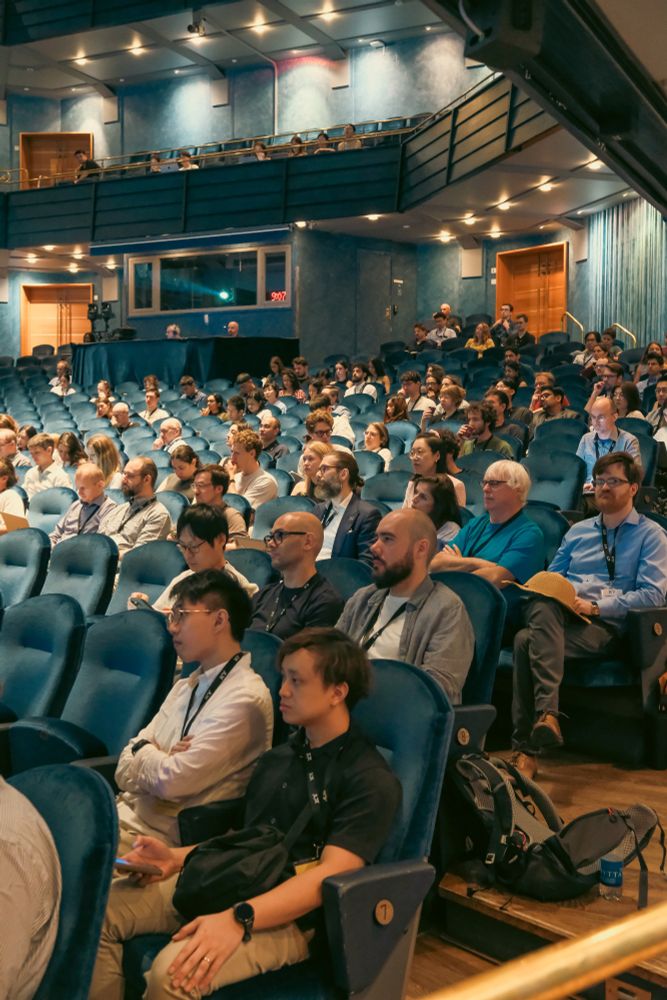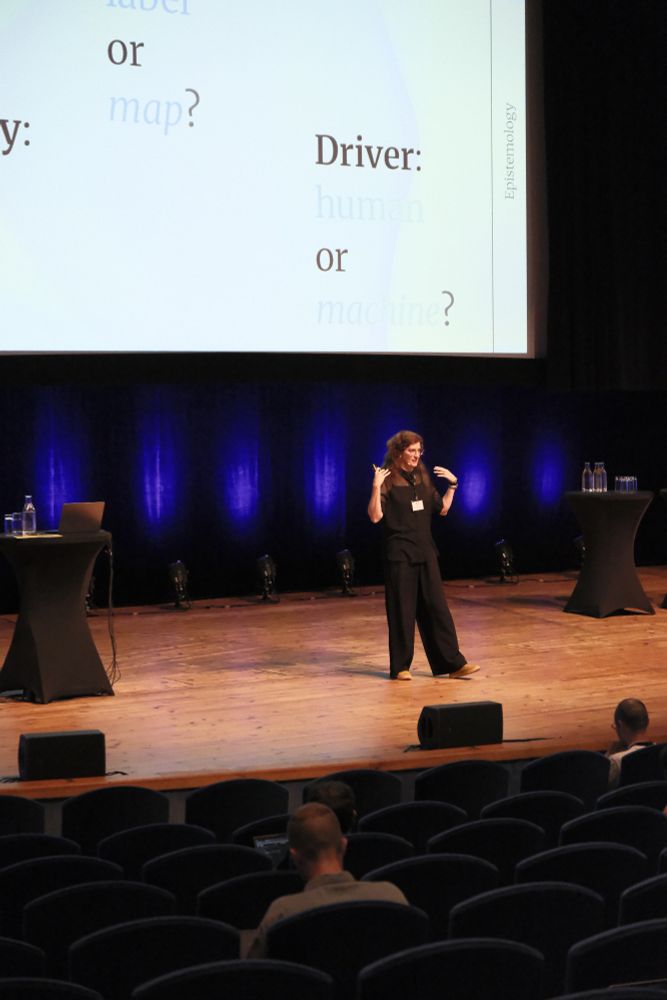Excellent article, @syeducation.bsky.social ! My 2¢ is that *generative* AI has no place in qualitative coding because coding does not require generating context-relevant text/extrapolating. It requires summarizing, labeling, and interpolation. Non-gen embedding models are probably more useful.
25.02.2026 06:07 —
👍 1
🔁 0
💬 0
📌 0

Valuing the Process vs. the Product in Research
On reasonable resistance to using GenAI in research
New post! "Valuing the Process vs. the Product in Research," in which I try to describe some of the tensions around using GenAI/LLMs in scientific research, and why it can be so difficult to have productive conversations on the topic. getsyeducated.substack.com/p/valuing-th...
24.02.2026 14:19 —
👍 46
🔁 24
💬 7
📌 7
YouTube video by Caspar van Lissa
Make Existing R Code Reproducible with 'worcs' and 'targets'
Does your R-script work on your computer? Want to make it fully reproducible on ANY system, now and in the future? In this video, I demonstrate how to turn R scripts into reproducible, version-controlled projects with worcs, renv, targets, and testthat to verify reproducibility. youtu.be/3mgRFMr5APU
23.02.2026 09:03 —
👍 6
🔁 2
💬 0
📌 0
Yes! Assumptions in models are one place where theory often (implicitly) pops up, I'd be very curious to hear your thoughts about it.
21.02.2026 08:45 —
👍 1
🔁 0
💬 1
📌 0
Conference –
Call for Submissions for the Theory Methods Conference 2026, September 30-October 2! theorymethodssociety.org/conference.h...
We invite you to:
1) Submit your proposal: edu.nl/mj9x6
2) Invite your colleagues/lab/(PhD) students, and encourage them to submit
3) Share this post
20.02.2026 09:27 —
👍 19
🔁 20
💬 1
📌 0

To Be FAIR: Theory Specification Needs an Update - Caspar J. Van Lissa, Aaron Peikert, Maximilian S. Ernst, Noah N. N. van Dongen, Felix D. Schönbrodt, Andreas M. Brandmaier, 2026
Open science innovations have focused on rigorous theory testing, yet methods for specifying, sharing, and iteratively improving theories remain underdeveloped....
Everyone’s talking about the "theory crisis" - but do we fix it with formal- or agent-based models, DAGs, propositions? Regardless: we need a shared medium to exchange and improve ideas. That medium is FAIR theory: Findable, Accessible, Interoperable, Reusable doi.org/10.1177/1745...
23.01.2026 08:50 —
👍 10
🔁 2
💬 0
📌 0
Articles
Try some of the tutorial vignettes included in the package! cjvanlissa.github.io/tidySEM/arti...
20.01.2026 17:31 —
👍 0
🔁 0
💬 0
📌 0
Excellent! Do your round tables also touch on digital autonomy from US tech giants?
19.01.2026 09:34 —
👍 2
🔁 0
💬 0
📌 0
YouTube video by Caspar van Lissa
Latent Class Analysis with Continuous and Ordinal Indicators in R
Open source software is powerful, but only if people know how to use it. After publishing 12 R packages, I'm shifting toward open educational materials with monthly deep-dive videos on data science in R. First up: mixed data (continuous/categorical) Latent Class Analysis with tidySEM! What's next?
19.01.2026 09:32 —
👍 37
🔁 5
💬 0
📌 0
Over christmas, I added tidySEM much-requested support for mixed-data latent class analysis (continuous/categorical)! This was technically possible, but the new implementation is easier, faster, with better convergence! Try it by running remotes::install_github("cjvanlissa/tidySEM"); ?mx_mixed_lca
05.01.2026 11:59 —
👍 1
🔁 0
💬 0
📌 0
Fantastic projects awarded, including two I'm part of: Hannes Datta's "ReproHub", which integrates reproducibility/checks into research infrastructure, and Terrence Jorgensen's "Infra-Structural Equation Modelling", which develops lavaan and related open educational material! Congratulations to all!
17.12.2025 10:21 —
👍 6
🔁 0
💬 0
📌 0

🟥 Ik staak tegen bezuinigingen op het hoger onderwijs. Investeren in de kenniseconomie is noodzakelijk om wereldwijde uitdagingen van klimaat, ongelijkheid, gezondheid, veiligheid, ea het hoofd te bieden. We roepen de overheid op: kies een andere koers.
Meer informatie: www.fnv.nl/ho
09.12.2025 12:00 —
👍 2
🔁 0
💬 0
📌 0

The Paul Meehl Graduate school provides FREE education for PhD students in Europe, especially in metascience and methodology paulmeehlschool.github.io Today is the kick-off of their annual conference!
17.10.2025 07:11 —
👍 9
🔁 3
💬 0
📌 0

Against publishing
Preprints are read, shared, and cited — yet still dismissed as incomplete until blessed by a publisher. Matti Vuorre argues that the true measure of scholarsh
"Preprints are read, shared, and cited — yet dismissed as incomplete until blessed by a publisher. [...] the true measure of scholarship lies in open exchange, not in the industry’s gatekeeping labels of what counts as published.
Against publishing - Univers magazine share.google/LSk8PkEKeRSb...
15.10.2025 12:50 —
👍 1
🔁 0
💬 0
📌 0
Yes, please! I'm fluent :)
22.09.2025 18:41 —
👍 2
🔁 0
💬 0
📌 0
LinkedIn
This link will take you to a page that’s not on LinkedIn
Is anyone willing to share their slides on philosophy of science for undergraduate (statistics) students, especially as it pertains to the hypothetico-deductive framework? Here are my current notes on the topic: lnkd.in/eB-TZGDK
22.09.2025 17:48 —
👍 4
🔁 1
💬 2
📌 0
Any experiences with "Journal of Computational Social Science"? I reviewed a manuscript that should have been desk-rejected (grammatically incorrect, not embedded in relevant literature, ad-hoc and nonsensical analysis decisions); the decision was "minor revision" based on ONLY my review. How!?
22.09.2025 05:21 —
👍 6
🔁 0
💬 0
📌 0

Abstract: Under the banner of progress, products have been uncritically adopted or
even imposed on users — in past centuries with tobacco and combustion engines, and in
the 21st with social media. For these collective blunders, we now regret our involvement or
apathy as scientists, and society struggles to put the genie back in the bottle. Currently, we
are similarly entangled with artificial intelligence (AI) technology. For example, software updates are rolled out seamlessly and non-consensually, Microsoft Office is bundled with chatbots, and we, our students, and our employers have had no say, as it is not
considered a valid position to reject AI technologies in our teaching and research. This
is why in June 2025, we co-authored an Open Letter calling on our employers to reverse
and rethink their stance on uncritically adopting AI technologies. In this position piece,
we expound on why universities must take their role seriously toa) counter the technology
industry’s marketing, hype, and harm; and to b) safeguard higher education, critical
thinking, expertise, academic freedom, and scientific integrity. We include pointers to
relevant work to further inform our colleagues.

Figure 1. A cartoon set theoretic view on various terms (see Table 1) used when discussing the superset AI
(black outline, hatched background): LLMs are in orange; ANNs are in magenta; generative models are
in blue; and finally, chatbots are in green. Where these intersect, the colours reflect that, e.g. generative adversarial network (GAN) and Boltzmann machine (BM) models are in the purple subset because they are
both generative and ANNs. In the case of proprietary closed source models, e.g. OpenAI’s ChatGPT and
Apple’s Siri, we cannot verify their implementation and so academics can only make educated guesses (cf.
Dingemanse 2025). Undefined terms used above: BERT (Devlin et al. 2019); AlexNet (Krizhevsky et al.
2017); A.L.I.C.E. (Wallace 2009); ELIZA (Weizenbaum 1966); Jabberwacky (Twist 2003); linear discriminant analysis (LDA); quadratic discriminant analysis (QDA).

Table 1. Below some of the typical terminological disarray is untangled. Importantly, none of these terms
are orthogonal nor do they exclusively pick out the types of products we may wish to critique or proscribe.

Protecting the Ecosystem of Human Knowledge: Five Principles
Finally! 🤩 Our position piece: Against the Uncritical Adoption of 'AI' Technologies in Academia:
doi.org/10.5281/zeno...
We unpick the tech industry’s marketing, hype, & harm; and we argue for safeguarding higher education, critical
thinking, expertise, academic freedom, & scientific integrity.
1/n
06.09.2025 08:13 —
👍 3757
🔁 1884
💬 110
📌 386
Loving @ic2s2.bsky.social , but I wonder if we're asking the right questions. Is "How can I outsource this task to a proprietary, black box, resource-intensive, often un-validated LLM?" when fit-for-purpose classifiers abound a computational a computational research question? Or even scientific?
23.07.2025 15:54 —
👍 9
🔁 3
💬 0
📌 0
LinkedIn
This link will take you to a page that’s not on LinkedIn
At my preconference workshop @ic2s2.bsky.social participants will conduct a *fully reproducible* and *FAIR theory based* simulation study.
The full interactive tutorial is in the theorytools R-package docs: cjvanlissa.github.io/theorytools/...
And slides: cjvanlissa.github.io/worcshop/ic2...
21.07.2025 06:00 —
👍 9
🔁 1
💬 0
📌 0
OSF
To be FAIR: Theory specification needs an update! Theories that others can reuse and update help navigate the "theory crisis". The theorytools R-package now has tutorials showing how to make theories FAIR and use them to select covariates, simulate data, etc
osf.io/preprints/ps...
24.06.2025 08:51 —
👍 10
🔁 3
💬 0
📌 1
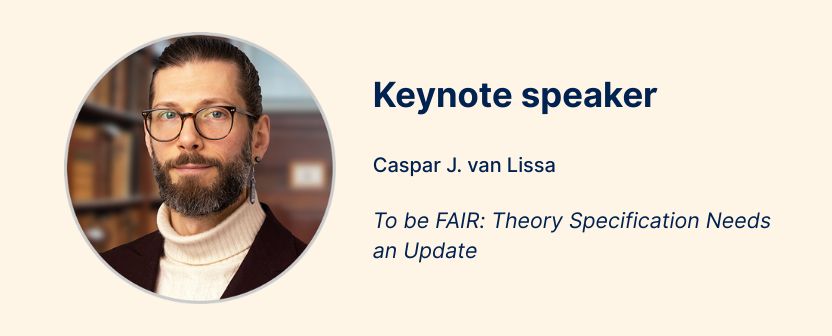
Keynote speaker
Caspar J. van Lissa
To be FAIR: Theory specification needs an update
🚨 Program Highlight!
We're thrilled to welcome @cjvanlissa.bsky.social as our keynote speaker on June 5th! He’ll present his work on FAIR theory—a framework to make theories Findable, Accessible, Interoperable & Reusable—and share his path as a meta-scientist. #openscience #FAIRtheory #metascience
21.05.2025 14:44 —
👍 6
🔁 2
💬 0
📌 0
The late Caryl Rusbult told me: in academia, celebrate all the small successes.
29.04.2025 18:14 —
👍 1
🔁 0
💬 0
📌 0
Job opening: PhD candidate in Machine Learning-Informed Formal Theory Construction (22752)
I'm hiring a PHD candidate in Machine Learning-Informed Formal Theory Construction. Please encourage talented students to apply, or reach out if you want to collaborate. Looking for machine learning, theory development, and programming skills, and interdisciplinary interests! See tiu.nu/22752
28.04.2025 08:54 —
👍 11
🔁 8
💬 0
📌 1

Under Pressure, Psychology Accreditation Board Suspends Diversity Standards
As the Trump administration threatens to strip accrediting bodies of their power, many are scrambling to purge diversity requirements.
Extremely disappointing & cowardly. The American Psychological Association is rescinding diversity requirements. Not due to any actual mandate from the federal government, but only because it may *someday* face pressure from the government www.nytimes.com/2025/03/27/h...
28.03.2025 01:16 —
👍 207
🔁 103
💬 20
📌 35













